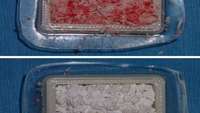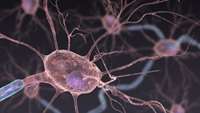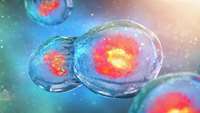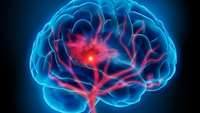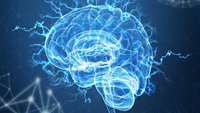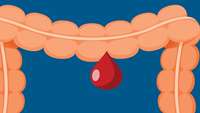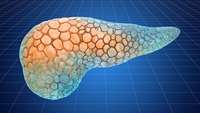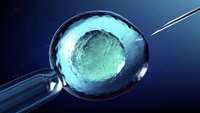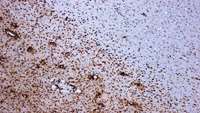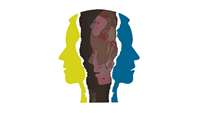Researchers advance craniofacial surgery with 3-D implants made inside the patient
The jawbone is not typically connected to the rib bone, but it might be iRice University bioengineers and their colleagues have developed a technique to grow live bone to repair craniofacial injuries by attaching a 3-D-printed bioreactor—basically, a mold—to a rib. Stem cells and blood vessels from the rib infiltrate scaffold material in the mold and replace it with natural bone custom-fit to the patient.
Stem cells provide information about neuron resilience in ALS
Researchers at Karolinska Institutet in Sweden have developed a stem cell based model in order to study the resilience and vulnerability of neurons in the neurodegenerative disease ALS. The results are published in the journal Stem Cell Reports and can aid in the identification of new genetic targets for treatments protecting sensitive neurons.
Forever young: study uncovers protein that keeps skin youthful
Beauty might only be skin deep, but for those wondering how to keep that skin young, scientists may have found an answer in the form of a protein that encourages cell competition.
This gene could play a major role in reducing brain swelling after stroke
Could a medication someday help the brain heal itself after a stroke, or even prevent damage following a blow to the head? A new USC study lends support to the idea.
Transplanted bone marrow endothelial progenitor cells delay ALS disease progression
The new study, published March 27 in Scientific Reports, contributes to a growing body of work exploring cell therapy approaches to barrier repair in ALS and other neurodegenerative diseases.
Gastrointestinal bleeding cell therapy awarded Orphan Drug designation
Mesoblast (Melbourne, Australia) has been granted FDA Orphan Drug designation for Revascor (rexlemestrocel-L), their preventative therapy for post-inflammatory mucosal bleeding.
Osiris Therapeutics Receives FDA Orphan Drug Designation for Stem Cell Treatment for Type 1 Diabetes
Osiris Therapeutics, Inc. (NASDAQ:OSIR) today announced that it has been granted Orphan Drug designation from the U.S. Food and Drug Administration (FDA) for Prochymal as a treatment for type 1 diabetes mellitus. The FDA instituted the Orphan Drug Act to promote the development of treatments for underserved patient populations.
Three-person baby born in medical revolution
A team of Greek and Spanish doctors announced Thursday the birth of a baby using DNA from three people after a controversial fertility treatment that has provoked intensThe team used an egg from the infertile mother, the fathers sperm and another womans egg to conceive the baby boy, transferring genetic material with chromosomes from the mother to the egg of a donor whose own genetic material had been removed in a process its creators hailed as a medical "revolution".
Brain stem cells age faster in multiple sclerosis patients
Brain stem cells in people with the most severe form of multiple sclerosis look much older than they really are, according to a study led by UConn Health and published in the Proceedings of the National Academy of Sciences (PNAS).
STEM CELLS STUDY AIMS TO FORESEE SCHIZOPHRENIA
Using new stem cell technology, scientists at the Salk Institute have shown that neurons generated from the skin cells of people with schizophrenia behave strangely in early developmental stages, providing a hint as to ways to detect and potentially treat the disease early (…)


